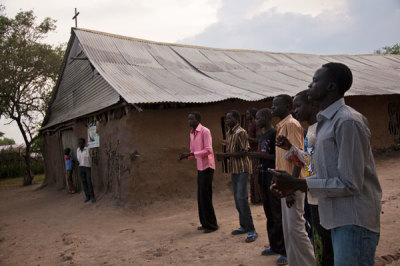Sudan Imprisons Three Church Officials in Khartoum

A mixed force of Sudanese police and national security officials have imprisoned three church leaders in Sudan; Mamedan Elia, Abdullah Said Balu and Stephen, who were serving in the "New Life Service" in Gideon College in Omdurman's Banet, in Khartoum.
The force resumed its campaign to imprison those who are part of Khartoum's Christian mission, including the Secretary of Student Services, Yousif Ali Said, and Administrative Director of the Church Father Barnabas Timothy.
It is unknown where the clergymen were taken.
According to "Ketabak" news site, a church official attributed the imprisonment to the hostile approach towards Christians in Sudan, especially the Christians in the Nubba Mountains region.
Activists in Khartoum warned of the forced kidnapping and intimidation exercised by the Sudanese security authorities against the Christians.
They added that they do not know the place of their imprisonment, nor whether they are being allowed to meet with their families, or to contact lawyers for their defense.
"If we wanted to present a sermon to Christians on Sunday, should we ask permission from security authorities?" a priest said to Ketabak.
He added, "This country has gone towards extremist Muslims. We are currently endearing tough harassment from the government."
Christians in Sudan face a hostile campaign from extremist Islamists, while the government authorities have been criticized for allegedly being sympathetic with such a campaign.
Such extremists set the Faculty of Theology in el-Gareef Church in Khartoum ablaze in 2012. They also demolished and stole the possessions of the Sudanese Church of Christ in 2011.
The Sudanese government took serious measures against Christians after the separation of South Sudan on July 7, 2011, such as canceling Christmas on December 25 and other Christian holidays.



























